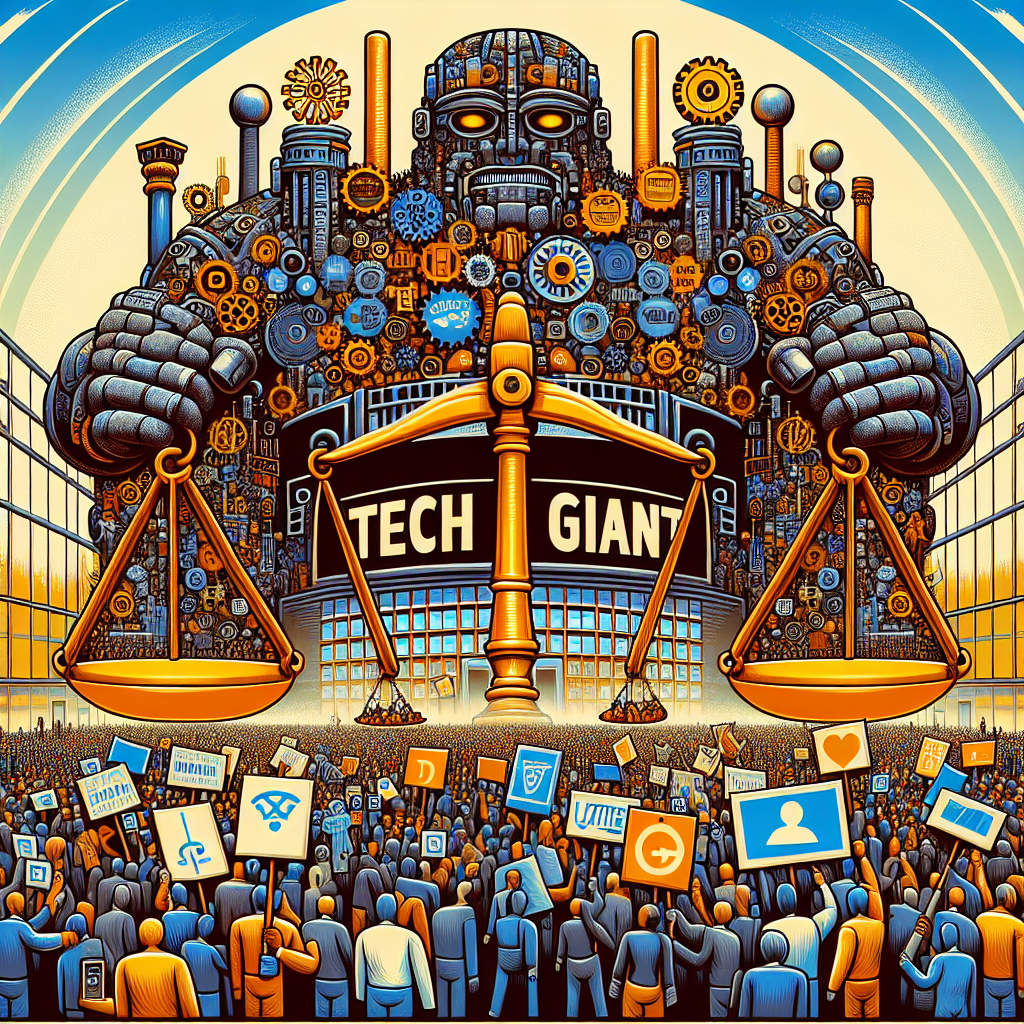Tech Giants Face Legal Backlash Over Alleged Consumer Deceptions
In a significant challenge to the tech industry, a series of class-action lawsuits were filed last week against major players like Amazon, Google, Apple, GoodRx, and various mobile gaming platforms. These suits, which emerged in federal courts across the U.S., allege violations including deceptive pricing practices, consumer protection infringements, and illegal gambling operations. Between December 3 and December 6, at least five lawsuits accused these tech giants of misleading customers, indicating a growing demand for accountability in a sector increasingly scrutinized for its practices.
One noteworthy case comes from Washington, where legal representatives are claiming that Amazon infringed upon the Washington Consumer Protection Act. The suit accuses Amazon of "inducing" customers to subscribe to its Prime service with the promise of expedited delivery, which allegedly has not been fulfilled. This misrepresentation, according to the lawsuit, was particularly pronounced in underserved ZIP codes where delivery delays were rampant, leading to only 24% of Prime packages arriving within the promised timeframe. "Unbeknownst to these consumers, Amazon has collectively charged them millions of dollars for a service they do not receive," the attorneys claimed.
In California, a similar claim has been lodged against Amazon over its Fresh grocery delivery service. Following the new Honest Pricing Law, the Swigart Law Group contends that Amazon has been covertly adding service fees, thus failing to provide transparent pricing to its customers. Joshua Swigart, the plaintiffs’ attorney, noted that tech companies have become known for noncompliance with laws designed to protect consumer rights. He expressed concern that these businesses are prioritizing profits over transparency, emphasizing that adherence to the law merely requires honesty in pricing.
On another front, lawsuits against Google and Apple are focused on their involvement with online gaming platforms accused of facilitating illegal gambling. The claims allege that both tech companies benefit from up to 30% of the revenue generated from in-app purchases that lead unsuspecting users into gambling practices disguised as games. This raises serious ethical questions about the responsibilities of tech companies in ensuring the legality and integrity of the products available through their platforms.
As these lawsuits unfold, they shine a light on a broader moral imperative. These legal allegations evoke strong biblical principles regarding honesty and fairness in business practices. In Proverbs 11:1, it is written, "The LORD detests dishonest scales, but accurate weights find favor with him." This verse underscores the importance of integrity and transparency in all dealings—a principle that resonates deeply in the current context of consumer rights and corporate responsibility.
As we reflect on these developments, it may be essential to consider how we hold businesses accountable and encourage a culture of honesty and fairness. The actions taken against these tech giants remind us that ethical behavior and transparency are not just legal requirements, but moral obligations as well.
Let these legal battles serve as a reminder for all of us to evaluate our own practices and relationships, fostering an environment where truth prevails, and trust flourishes. In doing so, we not only honor equitable treatment but also build a community reflective of the love and honesty that Jesus taught.
Explore and dig up answers yourself with our BGodInspired Bible Tools! Be careful – each interaction is like a new treasure hunt… you can get lost for hours 🙂


